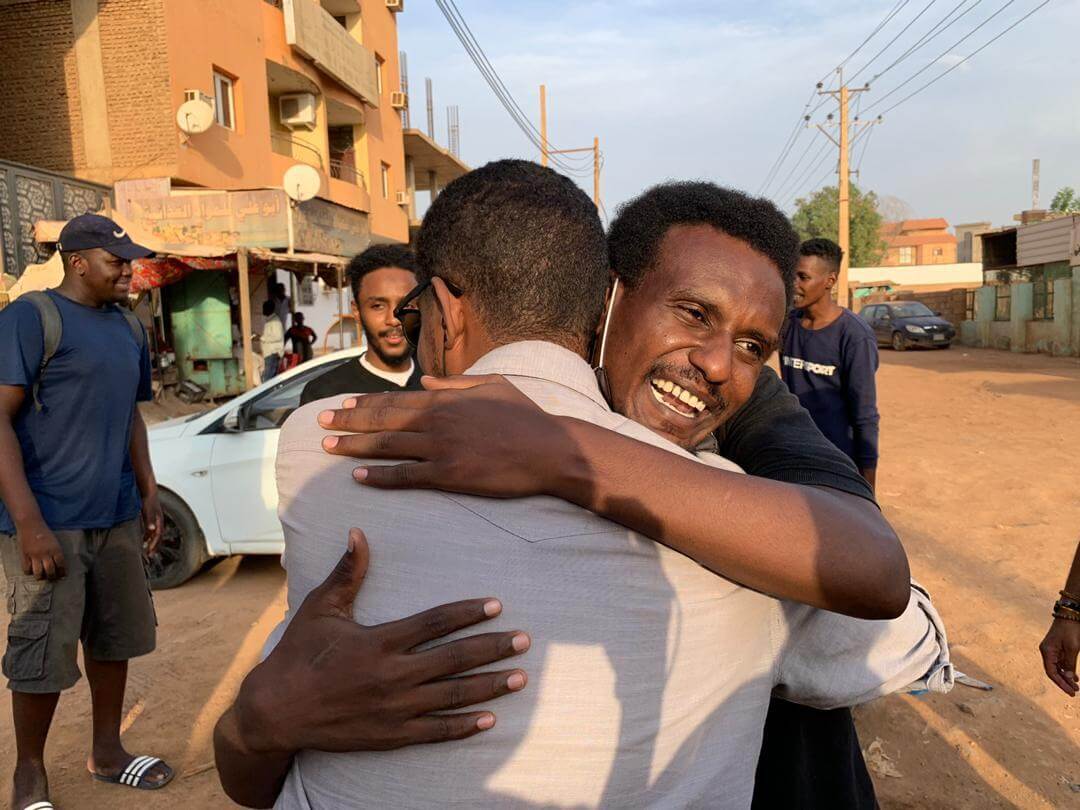NEW YORK (October 8, 2020) — HRF welcomes Sudan’s release of 11 artists and activists who were arbitrarily arrested in August and sentenced in September to two months in prison for holding a mixed-gender theater workshop in the capital Khartoum.
Among these artists was journalist, activist, and award-winning filmmaker Hajooj Kuka, a member of the youth pro-democracy movement Girifna, which received HRF’s 2015 Václav Havel Prize for Creative Dissent.
“We welcome the rulings by a Sudanese appeals court to overturn the bungled convictions of Hajooj Kuka and his fellow artists and activists and release them. They should have never been assaulted, intimidated, beaten, arrested, convicted, and jailed for holding a silent theater workshop. Performing art is not a crime,” said HRF president Thor Halvorssen. “Abusive practices and repressive laws from the era of former dictator Omar al-Bashir, such as the criminalization of freedom of association and restrictions on women’s rights, have no place in a free Sudan.”
All those arrested were involved in Sudan’s 2019 revolution, which ended Islamist military dictator Omar al-Bashir’s three decades of rule. Kuka, who is a member of the Academy of Motion Picture Arts and Sciences, was injured during security forces’ brutal dispersal of a sit-in in front of the military headquarters to demand civilian rule. He spoke to HRF about the ordeal.
On August 10, Kuka joined several artists and activists for a rhythmic body movement workshop at Civic Lab, a civic education, technology, media, and arts incubator in Khartoum’s Al-Zuhour neighbourhood. Artists present were Duaa Tariq, Abdel Rahman Mohamed Hamdan, and Ahmed Elsadig Ahmed Hammad of Color Sudan, which promotes civil and political rights in Sudan through art and theatre performances; Ayman Khalaf Allah Mohamed Ahmed, Ahmed Ibrahim (Tuhami), Khalid Khalfallah, and Aladine Omer of the theater group Feed Arts; and hip hop artist Muhanad Malik. Two grassroots activists, Hassan Talab and Muntasir Nagib, were also there.
The workshop was interrupted by some neighborhood residents, led by a member of former dictator Omar al-Bashir’s Islamist National Congress Party, who objected to the mingling of men and women. The hostile crowd threw stones and bricks at the building as others attacked the group of artists and activists inside. Police broke up the violence but did not arrest the assaillants. Officers invited the artists and activists to the police station, supposedly for their own protection, but proceeded to arrest them there after the group invoked a legal right to a medical report for actor and director Aladine Omer, who had been injured by assaillants.
A police investigator then tried to illegally take a photo of Duaa Tariq. When she protested, he repeatedly slapped her until she fainted. After her colleagues chanted revolutionary songs to protest her brutal treatment, police charged everyone in the group with breaching public peace and public nuisance under articles 69 and 77 of Sudan’s criminal code.
In September, the 11 artists were convicted, sentenced to 2 months in jail, and issued fines of 5,000 Sudanese Pounds (about $90 US). They were then incarcerated in Omdurman prison. Kuka said prison guards beat him and others, and partially shaved his head, but that the treatment later improved, in large part due to international pressure.
Kuka, Duaa Tarig, Abdel Rahman Mohamed Hamdan, Ayman Khalaf Allah Mohamed Ahmed, and Ahmed Elsadig Ahmed Hammad served two weeks in jail before an appeals court overturned their conviction and released them. Hassan Talab, Ahmed Ibrahim Tuhami, Muntasir Nagib, Khalid Khalfallah Mohamed Ahmed, Aladine Omer, and Muhanad Malik served 12 days in jail before their convictions were also overturned on appeal.
“We were missentenced, got our hair cut, [were] beaten and insulted, due to still-prevailing laws from Omar al-Bashir’s military Islamist dictatorship, which were carried out by the old guards of the police, prosecutor’s office, and judiciary system,” Kuka said.
Sudan’s transitional government, a power-sharing arrangement between civilian and military leaders from the old guard, enacted important legal reforms in July, including the abolition of the offense of apostasy (which carried the death penalty), the elimination of flogging as a punishment for crimes, and the criminalization of female genital mutilation. However, at least 22 repressive laws from the al-Bashir era still need to be changed, according to Kuka.
“Let’s be clear: we have civilian authorities sharing power with a military which has committed a genocide and mass atrocities,” said Kuka. “What we need are strong institutions that adhere to human rights, with built-in checks and balances.”
The Human Rights Foundation (HRF) is a nonpartisan, nonprofit organization that promotes and protects human rights globally, with a focus on closed societies.
For interview requests and media inquiries, contact [email protected].
